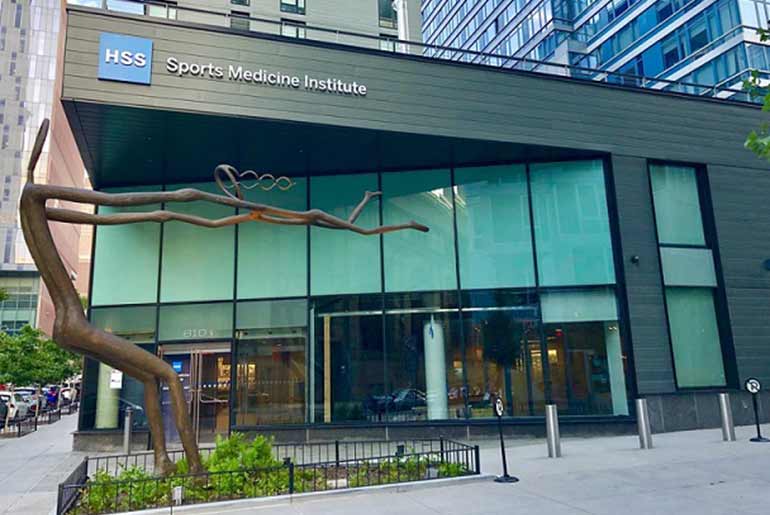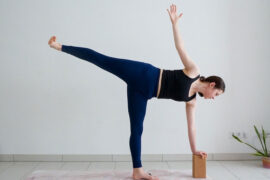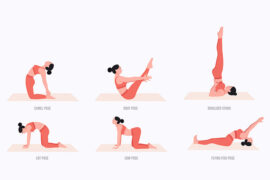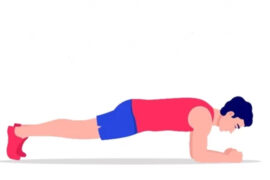A new set of guidelines has been created for COVID-19 infected patients by sports medical experts working for HSS or Hospital for Special Surgery Sports Medicine Institute, in order to help them start recreational exercise activities safely after they have been infected with COVID-19 that could be either mild or moderate. Many recommendations and considerations have been laid out in the guidelines, which is based on the latest evidence obtained on how COVID-19 affects various body systems.
COVID-19 is mainly a respiratory illness. Many individuals who develop sickness face mild to moderate pulmonary symptoms that can range from a dry cough or shortness of breath that can remain for a long period of six weeks. Nevertheless, there is a clear indication as to how COVID-19 can cause serious impact on the various body systems, with the cardiac, gastrointestinal, musculoskeletal as well as hematologic systems getting affected frequently.
In some cases, few patients suffer from extreme fatigue, irregular heart rhythms, muscle aches, blood clots, heart muscle inflammation, etc. apart from difficulties faced in breathing. Even elite athletes and healthy individuals have faced similar symptoms, who have suffered from mild and moderate COVID-19, even though they did not require hospitalization. Few of the individuals also referred to as “long-haulers” have had lingering symptoms for a few weeks and even for months despite the infection by SARS-CoV-2 getting cleared, which is the virus causing the COVID-19 infection.
Jordan D. Metzl, M.D., who is a sports medicine physician at HSS and the lead author of the guidelines mentioned that, being sports medicine doctors, they have always encouraged their patients to stay active, although they had realized that in the event of returning to the sport, a one-size-fits-all plan would not work properly in the case of those affected by COVID-19.
The new guidelines had been created by Dr. Metzl along with five colleagues who have experience in providing treatment for both recreational and professional athletes covering several sports activities at the HSS Sports Medicine Institute and the same has been published online in the HSS Journal on August 10, 2020
The guidelines mention that all those patients who desired to return to exercise must be aware of the fact that there is no typical recovery pattern post-COVID-19. The severity of the disease seems to affect the duration of recovery that has no scientific proof.
The guidelines state that those patients who have COVID-19 must not resume their exercises until the symptoms go away.
The exercise prescriptions provided by physicians must take into account symptoms, if any, of the body systems involved. Patients who have respiratory symptoms must be monitored carefully. Those patients with cardiac symptoms must take sufficient rest for at least two to three weeks once symptoms have been resolved. However, in cases of those patients with inflammation of the heart muscle should compulsorily rest for at least three to six months and must start their exercise only after undergoing rhythm monitoring, echocardiography and exercise testing.
Patients who have musculoskeletal issues would be able to return to exercise, once their symptoms are resolved. They can slowly go back to normal levels of activity. Moreover, sitting for lesser time and lower intensity exercises would help to reduce the risk of blood clots in patients who experience minor clotting issues. Finally, the intake of fluids and calories has to be carefully monitored in the case of patients who suffer from gastrointestinal problems once they return to activity.
Dr. Metzl had mentioned that being a new disease, the landscape surrounding COVID-19 had been undergoing a rapid change. He further added that they would be updating the guidelines with time, when they begin to understand the disease even better than before.
Image Source: https://orthospinenews.com/
Disclaimer:
The information contained in this article is for educational and informational purposes only and is not intended as a health advice. We would ask you to consult a qualified professional or medical expert to gain additional knowledge before you choose to consume any product or perform any exercise.






